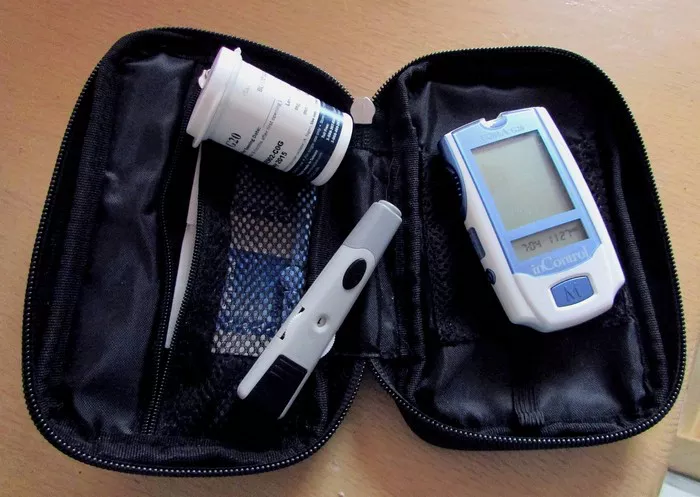The Role of Insulin in Metabolism and Health
Insulin is a critical hormone in the human body, essential for regulating blood glucose levels and overall metabolic health. Produced by the pancreas, insulin facilitates the uptake of glucose by cells, enabling them to utilize it for energy. It also plays a vital role in storing excess glucose as glycogen in the liver and muscles. Understanding what constitutes a normal insulin level is crucial for diagnosing and managing various metabolic disorders, including diabetes. This article delves into the intricacies of insulin function, the factors influencing insulin levels, and the clinical implications of abnormal insulin levels.
The Physiology of Insulin
Insulin is a peptide hormone produced by the beta cells of the islets of Langerhans in the pancreas. Its primary function is to lower blood glucose levels by promoting the uptake of glucose into cells, particularly muscle and fat cells, and inhibiting glucose production by the liver. Insulin achieves this by binding to insulin receptors on the surface of cells, triggering a series of intracellular events that facilitate glucose entry into the cell.
When you consume carbohydrates, they are broken down into glucose, which enters the bloodstream. The rise in blood glucose levels stimulates the pancreas to release insulin. This process helps maintain blood glucose levels within a narrow range, typically between 70 and 140 mg/dL, depending on the time of day and recent food intake.
Normal Insulin Levels
Normal insulin levels can vary depending on several factors, including age, weight, diet, and overall health. In fasting adults, normal insulin levels typically range from 2.6 to 24.9 µIU/mL. After eating, insulin levels can spike to manage the influx of glucose from food, but these levels usually return to baseline within a few hours.
It’s important to note that what is considered “normal” can vary slightly depending on the laboratory and the specific assay used. Therefore, clinicians often use a range rather than a single value to determine normal insulin levels.
Factors Influencing Insulin Levels
Several factors can influence insulin levels in the body:
- Diet: Carbohydrate intake directly affects insulin levels. High-carbohydrate meals lead to higher insulin release compared to low-carbohydrate meals.
- Physical Activity: Exercise enhances insulin sensitivity, meaning that less insulin is needed to manage blood glucose levels.
- Body Weight: Obesity is often associated with insulin resistance, where higher levels of insulin are required to maintain normal blood glucose levels.
- Age: Insulin sensitivity tends to decrease with age, potentially leading to higher insulin levels.
- Genetics: Genetic predisposition can influence how an individual’s body produces and responds to insulin.
- Hormonal Changes: Hormones such as cortisol, growth hormone, and catecholamines can affect insulin secretion and action.
Insulin Resistance and Hyperinsulinemia
Insulin resistance occurs when cells in the body become less responsive to insulin, necessitating higher levels of insulin to achieve the same effect. This condition is often a precursor to type 2 diabetes and is commonly associated with obesity, metabolic syndrome, and polycystic ovary syndrome (PCOS).
Hyperinsulinemia refers to elevated levels of insulin in the blood. It is typically a compensatory response to insulin resistance but can also occur in conditions like insulinoma (a rare insulin-producing tumor). Chronic hyperinsulinemia can have several adverse effects on health, including:
- Cardiovascular Disease: High insulin levels are associated with hypertension, dyslipidemia, and atherosclerosis.
- Weight Gain: Insulin promotes fat storage, and elevated levels can lead to increased fat accumulation.
- Inflammation: Insulin resistance is linked to chronic low-grade inflammation, which is a risk factor for various chronic diseases.
Diagnosing Insulin Disorders
Several tests are used to assess insulin levels and diagnose related disorders:
- Fasting Insulin Test: Measures insulin levels after a period of fasting (usually 8-12 hours). Elevated fasting insulin levels may indicate insulin resistance or hyperinsulinemia.
- Glucose Tolerance Test: Assesses the body’s response to a glucose load. Insulin levels are measured at multiple intervals after consuming a glucose-rich drink. This test can help diagnose diabetes and assess insulin sensitivity.
- Insulin Suppression Test: Measures how well insulin is working to lower blood glucose levels by suppressing endogenous insulin production and providing a controlled amount of insulin.
Clinical Implications of Abnormal Insulin Levels
In type 1 diabetes, the immune system attacks and destroys insulin-producing beta cells, leading to an absolute deficiency of insulin. Patients with type 1 diabetes require exogenous insulin to manage their blood glucose levels. Monitoring insulin levels can help assess the effectiveness of treatment and the progression of the disease.
Type 2 Diabetes
Type 2 diabetes is characterized by insulin resistance and relative insulin deficiency. Initially, the pancreas compensates by producing more insulin, leading to hyperinsulinemia. Over time, beta cells may become exhausted, resulting in decreased insulin production. Managing insulin levels in type 2 diabetes involves lifestyle interventions, oral medications, and sometimes insulin therapy.
Polycystic Ovary Syndrome (PCOS)
PCOS is a common endocrine disorder in women of reproductive age and is often associated with insulin resistance and hyperinsulinemia. Elevated insulin levels can exacerbate the symptoms of PCOS, including irregular menstrual cycles, hirsutism, and infertility. Addressing insulin resistance through diet, exercise, and medications like metformin can improve symptoms and reduce long-term health risks.
Metabolic Syndrome
Metabolic syndrome is a cluster of conditions, including insulin resistance, obesity, hypertension, and dyslipidemia, that increase the risk of cardiovascular disease and type 2 diabetes. Elevated insulin levels are a hallmark of metabolic syndrome. Addressing lifestyle factors such as diet and physical activity is crucial for managing insulin levels and reducing the risk of associated diseases.
Management of Insulin Levels
Managing insulin levels involves a combination of lifestyle modifications, medications, and, in some cases, insulin therapy.
Lifestyle Modifications
- Diet: A balanced diet that emphasizes low glycemic index foods, whole grains, lean proteins, and healthy fats can help regulate blood glucose and insulin levels. Reducing refined carbohydrates and sugars is particularly important for managing insulin resistance.
- Physical Activity: Regular exercise improves insulin sensitivity and helps maintain a healthy weight. Both aerobic exercise and resistance training are beneficial.
- Weight Management: Achieving and maintaining a healthy weight can significantly improve insulin sensitivity and reduce the need for high levels of insulin.
Medications
- Metformin: Commonly used in the treatment of type 2 diabetes and PCOS, metformin improves insulin sensitivity and reduces hepatic glucose production.
- Thiazolidinediones: This class of drugs, including pioglitazone and rosiglitazone, enhances insulin sensitivity but may have side effects such as weight gain and edema.
- GLP-1 Receptor Agonists: These medications, such as exenatide and liraglutide, enhance insulin secretion in response to meals and promote weight loss.
Insulin Therapy
For individuals with type 1 diabetes and some with type 2 diabetes, insulin therapy is necessary to manage blood glucose levels. Insulin therapy can be administered in various forms, including:
- Basal Insulin: Long-acting insulin that provides a steady level of insulin throughout the day and night.
- Bolus Insulin: Short-acting insulin taken before meals to manage the rise in blood glucose levels from food.
- Insulin Pumps: Devices that provide continuous subcutaneous insulin infusion, allowing for more precise control of insulin delivery.
Future Directions in Insulin Research
Advancements in insulin research and diabetes management hold promise for improving the lives of individuals with insulin disorders. Some emerging areas of interest include:
- Artificial Pancreas Systems: These systems combine continuous glucose monitoring and insulin delivery to automatically regulate blood glucose levels, mimicking the function of a healthy pancreas.
- Beta Cell Regeneration: Research into regenerating or transplanting beta cells aims to restore natural insulin production in individuals with diabetes.
- Gene Therapy: Investigating the potential for gene therapy to address genetic causes of insulin resistance and beta cell dysfunction.
Conclusion
Understanding normal insulin levels and the factors that influence them is essential for diagnosing and managing various metabolic disorders. Insulin plays a pivotal role in maintaining blood glucose homeostasis, and deviations from normal levels can have significant health implications. By adopting healthy lifestyle practices and utilizing appropriate medical interventions, individuals can manage their insulin levels effectively and reduce the risk of complications associated with insulin resistance and diabetes. Ongoing research continues to expand our knowledge of insulin function and offers hope for more advanced and effective treatments in the future.
Related topics:
What Is The Optimal Blood Sugar Level
























